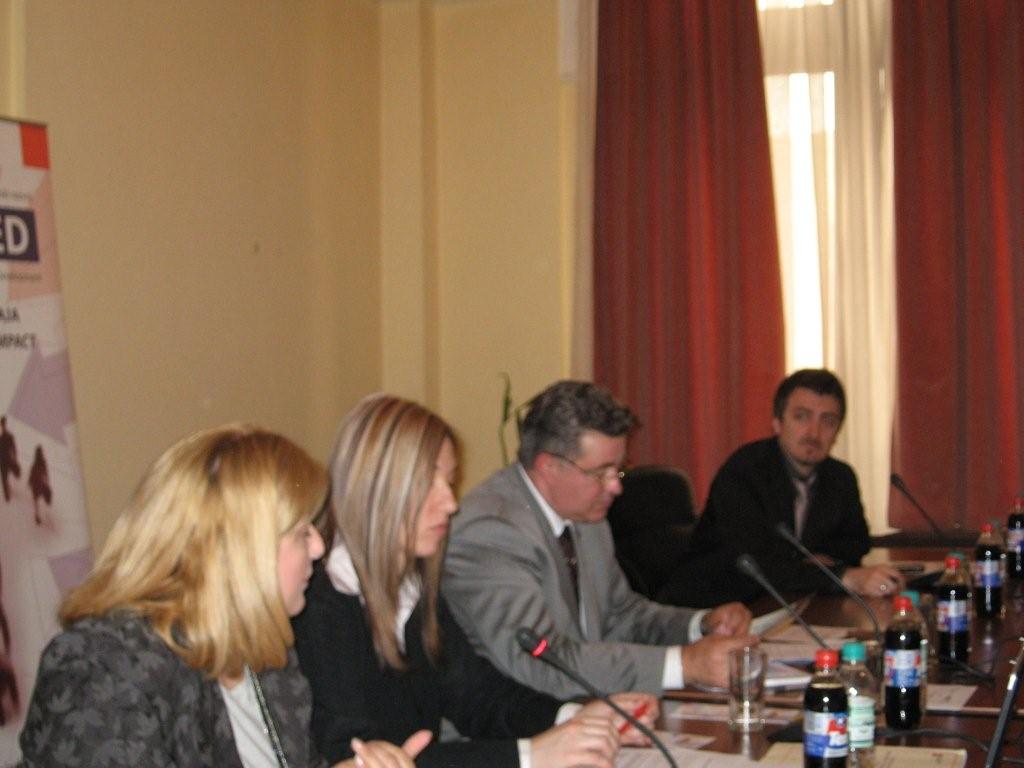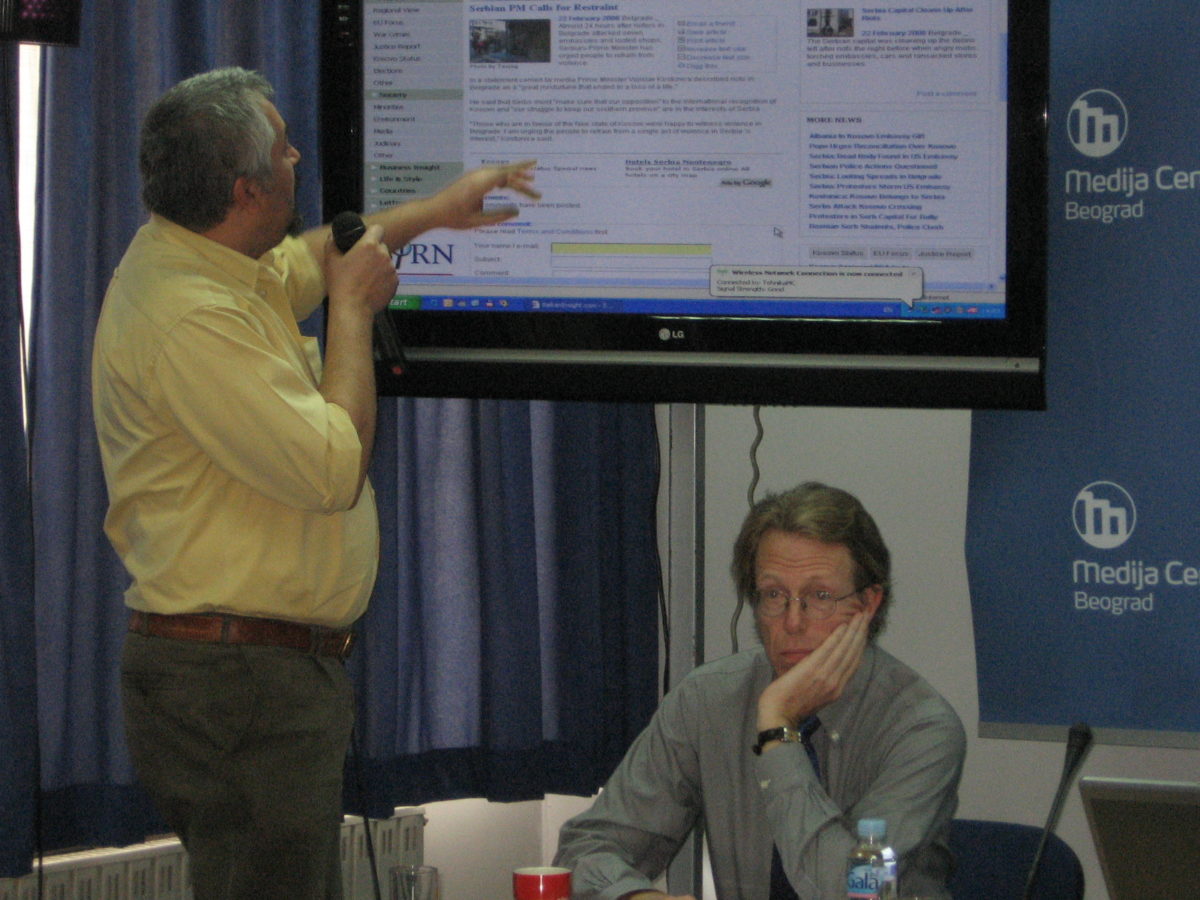The BIRN Serbia team organized an advanced journalism training session for local Serbs, Montenegrin and Bosniak journalists in Kosovo. The training was held from June 29 to July 1, in northern Mitrovica, as part of BIRN’s ongoing Minority Training and Reporting project.
The group comprised journalists who, having completed primary level training, have become regular BIRN contributors from Kosovo. In addition, two journalists were trained for the first time in news analyses and feature writing. They will begin work with other colleagues on articles dealing with issues concerning minority communities in Kosovo.
The training was delivered by Aleksandar Vasovic, BIRN Serbia editor, and Tim Judah, British journalist and expert on the Balkans. Over three days, Vasovic led a discussion on the differences in approach to reporting on Kosovo by journalists in the disputed territory, Belgrade and abroad, and looked at different ways of making a local story interesting and understandable to international readers.
Judah then held an editorial session with journalists; talking about how to put events in wider context, give local stories a broader perspective, about sources in the international community and new topics emerging in Kosovo.
Special attention was devoted to the question of ethical dilemmas raised by trainees, such as a reluctance to tackle topics that are not in the interest of their communities and the boundaries of professionalism.
Both Vasovic and Judah participated in a session devoted to outlining stories that will be published in August in a special edition of Balkan Insight.
The British Embassy in Belgrade and National Endowment for Democracy, NED, sponsored the event as part of a three-year journalism-training project.

